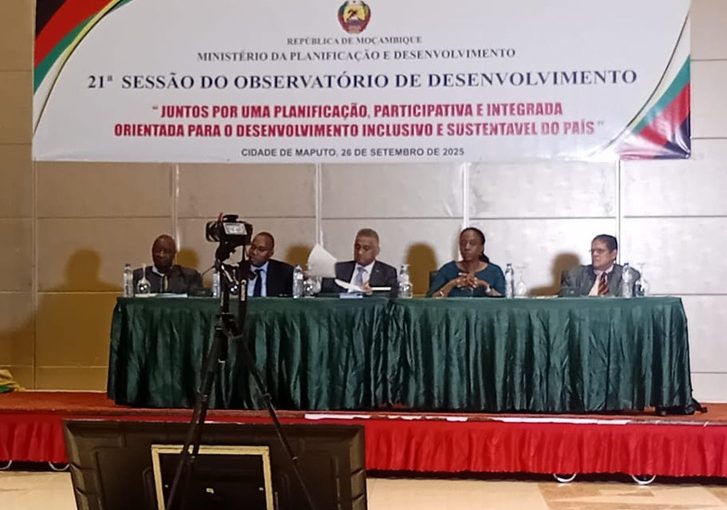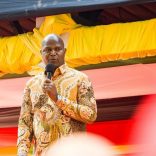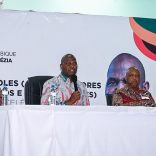Mozambique committed to combating money laundering and financial crimes
Mozambique expects GDP growth of up to 2.5% this year

"These indicators reveal an economic recovery and renewed confidence among private investors. GDP growth is expected to be in the range of 1.9% to 2.5% by the end of the year," Minister Salim Valá said today at the Development Observatory Forum. [Photo /cropped): Forum da Sociedade Civil para os Direitos da Crianca - ROSC]
The Mozambican government stated today that the economy maintained a year-on-year inflation rate of 4.79% in the first half of the year, amid renewed investor confidence, and that GDP growth is expected to stand between 1.9% and 2.5% by the end of the year.
“Despite the economic and financial challenges, inflationary pressure remains contained, with a year-on-year rate of 4.79%, which has contributed to the reduction of interest rates in the credit market,” said Salim Valá, Minister of Planning and Development.
The Minister was speaking in Maputo during the Development Observatory, a consultative forum between the government and development partners. During the event, the government presented the proposed 2026 Economic and Social Plan and State Budget (PESOE) and data on this year’s implementation. Valá highlighted signs of economic recovery, particularly following the post-election protests in late 2024 and early 2025, which had negatively impacted the economy.
“These indicators reveal an economic recovery and renewed confidence among private investors. GDP growth is expected to be in the range of 1.9% to 2.5% by the end of the year,” he said.
The Minister of Planning and Development noted that this growth is being sustained by the revitalisation of productive sectors, including manufacturing, agriculture, construction, tourism, transport, and services.
With what he described as “encouraging signs” of recovery already visible in the second half of the year, Valá said the government expects economic growth to accelerate in 2026, the second year of implementation of the Five-Year Plan led by President Daniel Chapo, who was elected in October.
According to Valá, starting next year, Mozambique will also “enter cruising speed towards establishing an economy based on diversified sectors, not excessively dependent on the extractive industry, thereby boosting economic transformation and strengthening the foundations for achieving economic independence.”
The government also forecasts a moderate economic recovery of around 3.2% in 2026, driven by recovery in the services sector, expansion of liquefied natural gas (LNG) exports, greater dynamism in agriculture, and significant investment in the energy sector.
“The average annual inflation rate is expected to remain within the target of 3.7%, supported by prudent monetary policy and relative exchange rate stability,” Valá added.
Previously, the government had forecast that Mozambique would close 2025 with inflation at around 7%.
The Bank of Mozambique has also predicted that annual inflation will continue to slow in the coming months, citing the government’s recent decision to exempt basic goods from VAT and reduce toll fees by up to 60%.
“In the short term, the trend of decelerating annual inflation is expected to continue, reflecting the impact of VAT exemptions on basic goods (sugar, cooking oil, and soap), the downward adjustment of water and toll fees, and falling food prices on the international market, within a context of metical stability,” states the Economic Situation and Inflation Outlook report, published by the central bank and reported by Lusa in May.
The central bank also noted that its regular survey of economic agents confirms the outlook for slowing inflation, with macroeconomic expectations from the May study pointing to annual inflation of 4.9% in December 2025—a downward revision of three basis points compared to April’s expectations.













Leave a Reply
Be the First to Comment!
You must be logged in to post a comment.
You must be logged in to post a comment.